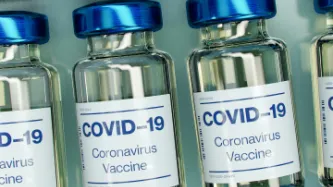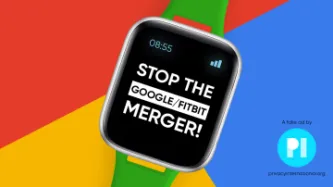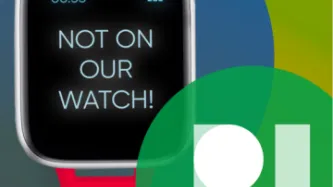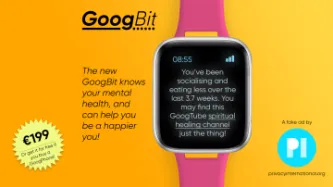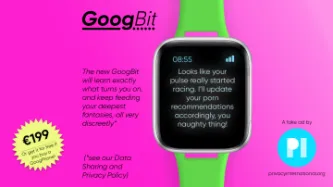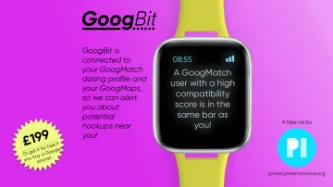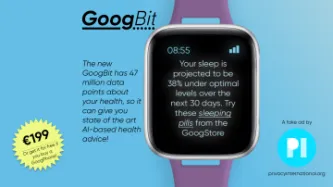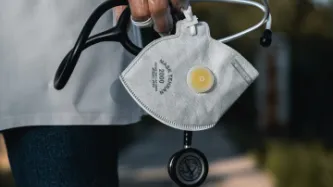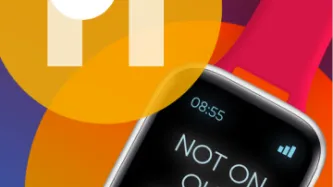Search
Content type: News & Analysis
Today, the European Commission has concluded its Phase II in-depth review of the proposed acquisition of the health and fitness tracker Fitbit by Google, deciding that the merger can go through. While we welcome the commitments put forward by Google to mitigate some risks of compromising individuals' rights and competition, PI considers the effects of this merger will further strengthen Google's capacity to exploit our data.
On 15 June 2020, Google formally notified the European Commission of…
Content type: Long Read
As we see Covid-19 vaccination programmes beginning around the world, for the first time since the start of the pandemic there seems to be a light at the end of the tunnel as the fruition of truly unrivalled global scientific efforts has given us hope of saving lives, reopening our societies, and going back to “normal”.
This great moment of hope must not be seen opportunistically as yet another data grab. The deployment of vaccines, and in particular any “immunity passport” or certificate…
Content type: Long Read
In 2019, we exposed the practices of five menstruation apps that were sharing your most intimate data with Facebook and other third parties. We were pleased to see that upon the publication of our research some of them decided to change their practices. But we always knew the road to effective openness, transparency, informed consent and data minimisation would be a long one when it comes to apps, which for the most part make profit from our menstrual cycle and even sometimes one’s desire to…
Content type: Examples
Questions have been raised about an irregular process by which the Trump administration awarded a $10.2 million dollar six-month contract to Pittsburgh-based TeleTracking Technologies. TeleTracking has traditionally sold software to help hospitals track patient status; under the new contract it is collecting key data about COVID-19 from US hospitals, bypassing the Centers for Disease Control and Prevention, to which such data is normally reported. The contract was awarded by the Department of…
Content type: Examples
Manchester-based VST Enterprises is developing a rapid COVID-19 testing kit intended to help restart stadium sporting events. The results of tests, which fans will take the day before the event they wish to attend and provide results within ten minutes, will be stored in VSTE’s V-Health Passport, a secure mobile phone app into which users enter their name, address, date of birth, phone number, and doctor information, plus a scanned official identity document against which the smartphone can…
Content type: Long Read
An edited version of this article was originally published on the EDRi website in September 2020.
Introduction
Monopolies, mergers and acquisitions, anti-trust laws. These may seem like tangential or irrelevant issues for privacy and digital rights organisations. But having run our first public petition opposing a big tech merger, we wanted to set out why we think this is an important frontier for people's rights across Europe and indeed across the world.
In June, Google notified the…
Content type: News & Analysis
No doubt this is turning out to be a summer full of news about internet companies' digital dominance.
In June, Google notified the European Commission of its plan to acquire Fitbit - a plan that we immediately identified would raise grave concerns for our well-being as consumers.
Today the European Commission has made its decision. And it's good news.
The European regulator has decided to undertake a detailed 'Phase 2' investigation, rather than just green light Google's plans, voicing also the…
Content type: Explainer
At first glance, infrared temperature checks would appear to provide much-needed reassurance for people concerned about their own health, as well as that of loved ones and colleagues, as the lockdown is lifted. More people are beginning to travel, and are re-entering offices, airports, and other contained public and private spaces. Thermal imaging cameras are presented as an effective way to detect if someone has one of the symptoms of the coronavirus - a temperature.
However, there is little…
Content type: Examples
The New Zealand MP Hamish Walker, a member of the centre-right opposition National party, admitted leaking the details of all the country’s 18 active COVID-19 cases to the media in order to “expose the government’s shortcoming”. Walker said he had been advised that his actions were not illegal. The government has announced an independent inquiry.
Publication: Guardian
Writer: Eleanor Ainge Roy
Content type: Advocacy
Introduction
In February 2020, the Australian Competition and Consumer Commission (ACCC) commenced an investigation into the proposed acquisition of Fitbit by Google, which was originally announced in November 2019.
In March 2020, we made a submission to the ACCC, arguing that the acquisition would very likely have onerous implications for both consumers and markets. We asked the Australian regulator to apply strict scrutiny and not let hisory once again repeat itself. We concluded that the…
Content type: Explainer
Definition
An immunity passport (also known as a 'risk-free certificate' or 'immunity certificate') is a credential given to a person who is assumed to be immune from COVID-19 and so protected against re-infection. This 'passport' would give them rights and privileges that other members of the community do not have such as to work or travel.
For Covid-19 this requires a process through which people are reliably tested for immunity and there is a secure process of issuing a document or other…
Content type: News & Analysis
Name: Google/Fitbit merger
Age: Gestating
Appearance: A bit dodgy. One of the world’s biggest tech giants, trying to purchase a company that makes fitness tracking devices, and therefore has huge amounts of our health data.
I don’t get it. Basically Google is trying to buy Fitbit. As if Google doesn’t already have enough data about us, it now wants huge amounts of health data too.
Oh, Fitbit, that’s that weird little watch-type-thing that people get for Christmas, wear for about a month…
Content type: Long Read
Monday, 16 June 2025
It’s 7:33 am. Lila’s GoogBit watch vibrates. “You got 6 hours and 57 minutes of sleep last night, including 2 hours and 12 minutes of deep sleep”, the watch reads. “In total, you tossed and turned for 15 minutes only”. Taking into account Lila’s online browsing activity, her sleep pattern, the recent disruptions in some of her other biorhythms, as well as her daily schedule, GoogBit watch has calculated the very best minute to wake her up.
Content type: Call to Action
Google wants to know everything about you.
It already holds a massive trove of data about you, but by announcing its plans to acquire the health and fitness tracker company Fitbit, it now clearly wants to get its hands on your health too. We don’t think any company should be allowed to accumulate this much intimate information about you. This is why we’re trying to stop its merger with Fitbit.
Google and Fitbit need the European Commission’s approval before they can merge. The merger would…
Content type: Press release
On 15 June 2020, Google formally notified the European Commission of its proposed acquisition of Fitbit, enabling them to capture a massive trove of sensitive health data that will expand and entrench its digital dominance. Privacy International is calling on EU regulators to block the merger.
In November 2019, Google announced its plan to acquire Fitbit, a company that produces and sells health tracking technologies and wearables - including smartwatches, health trackers and smart scales -…
Content type: Examples
Immunity passports are likely to increase discrimination and threaten fairness and public health - and won't work for practical reasons. First and foremost, scientists do not yet know whether infection confers immunity or for how long; the serological tests so far developed are insufficiently reliable; the volume of testing required is not feasible; and no country has enough survivors of COVID-19 to boost its economy. There are also numerous ethical objections.
Writer: Natalie Kofler and…
Content type: News & Analysis
This week, we read that a former Apple contractor who blew the whistle on the company’s programme to listen to users’ Siri recordings has decided to go public, in protest at the lack of action taken as a result of the July 2019 disclosures. The news adds to a series of revelations that have been reported over the past months.
While the issue raises serious questions regarding the compatibility of such practices with data protection laws, at the same time, it highlights a wider problem that…
Content type: Long Read
Covid Apps are on their way to a phone near you. Is it another case of tech-solutionism or a key tool in our healthcare response to the pandemic? It’s fair to say that nobody quite knows just yet.
We’ve been tracking these apps since the early days. We’ve been monitoring Apple and Google closely, have been involved in the UK’s app process, our partners in Chile and Peru have been tracking their governments’ apps, and more.
Of course privacy concerns arise. But only a simplistic analysis would…
Content type: Explainer
In a scramble to track, and thereby stem the flow of, new cases of COVID-19, governments around the world are rushing to track the locations of their populace.
In this third installment of our Covid-19 tracking technology primers, we look at Satellite Navigation technology. In Part 1 of our mini-series on we discussed apps that use Bluetooth for proximity tracking. Telecommunications operators ('telcos'), which we discussed in Part 2, are also handing over customer data, showing the cell towers…
Content type: Long Read
This week saw the release of a coronavirus tracking app within the United Kingdom, initially to be trialled in the Isle of Wight. Privacy International has been following this closely, along with other ‘track and trace’ apps like those seen in over 30 other countries.
The UK’s app is no different. It is a small part of a public health response to this pandemic. As with all the other apps, it is vital that it be integrated with a comprehensive healthcare response, prioritise people, and…
Content type: Long Read
On 12 April 2020, citing confidential documents, the Guardian reported Palantir would be involved in a Covid-19 data project which "includes large volumes of data pertaining to individuals, including protected health information, Covid-19 test results, the contents of people’s calls to the NHS health advice line 111 and clinical information about those in intensive care".
It cited a Whitehall source "alarmed at the “unprecedented” amounts of confidential health information being swept up in the…
Content type: Long Read
UPDATE 21/07/2020: On Monday July 20th, the Israeli parliament approved a new bill allowing the Ministry of Health to rely again on the Intelligence Services to track people who may have been exposed to Covid 19 when the number of new cases reaches 200 and above per day. The authorisation is then granted for three weeks and can be extended if the numbers have not decreased. The new law will be effective until January 2021. As of July 21st and for at least the next three weeks, the Intelligence…
Content type: Press release
Photo by Ashkan Forouzani on Unsplash
Today Privacy International, Big Brother Watch, medConfidential, Foxglove, and Open Rights Group have sent Palantir 10 questions about their work with the UK’s National Health Service (NHS) during the Covid-19 public health crisis and have requested for the contract to be disclosed.
On its website Palantir says that the company has a “culture of open and critical discussion around the implications of [their] technology” but the company have so far…
Content type: Examples
Liechtenstein is the first European country to use biometric electronic bracelets to implement a real time coronavirus tracking programme. The bracelet, which sends skin temperature, breathing, and pulse, among other metrics, for analysis in a Swiss lab, is being offered to 5% of the population. The country, which acted early to prevent the epidemic, plans to roll the bracelets out to the entire population by autumn.
Source: https://inews.co.uk/news/health/coronavirus-testing-latest-…
Content type: Advocacy
Background
In February 2020, the Australian Competition and Consumer Commission (ACCC) commenced an investigation into the proposed acquisition of Fitbit by Google, which was originally announced in November 2019.
Google, whose parent company, Alphabet, in 2018, generated 85% of its $136.22 billion in revenue from delivering targeted advertisements, has a past of competition law infringements in the European Union. Fitbit is a company that produces and sells health tracking technologies and…
Content type: Examples
North Macedonia is the first country in the Western Balkans to launch a contact-tracing app. The government has stressed that the Bluetooth-based app, StopKorona!, complies with all legal privacy requirements. The app follows a decentralised design, so that users maintain full control over their data, which is deleted after 14 days; if they test positive for the virus they can choose to send their location history to the Ministry of Health so that their contacts can be alerted. The app was…
Content type: Examples
India's COVID-19 tracker app, Aarogya Setu, was downloaded 50 million times in the first 13 days it was available. Developed by the National Informatics Centre a subsidiary of the Ministry of Electronics and IT, the app is available on both Android and iOS smartphones, and uses GPS and Bluetooth to provide information on whether the phone has been near an infected person. Users provide a mobile number, health status, and other credentials, and must keep both location services and Bluetooth…
Content type: Examples
The Australian government's planned contact tracing app will reportedly be based on Singapore's TraceTogether, which relies on Bluetooth connections to detect other phones in range and log the results, so that if a phone user tests positive for COVID-19 and consents their close contacts can be alerted by uploading the logs to a centralised server. A second app, ConTrace, is in development for the Public Transport Information and Priority System; the prototype requires no personal information…
Content type: Examples
Palantir and the British AI start-up Faculty are data-mining large volumes of confidential UK patient information to consolidate government databases and build predictive computer models under contract to NHSx, the digital transformation arm of the UK's National Health Service. NHSx said the goal is to give ministers and officials real-time information to show where demand is rising and equipment needs to be deployed, and that the companies involved do not control the data and are not allowed…
Content type: Examples
Oura Rings, which measure body temperature and blood pulse volume to determine heart and respiratory rate and track sleep, are the subject of a national study being jointly conducted by the West Virginia University Rockefeller Neuroscience Institute, WVU Medicine, and Oura Health in hopes it can be used to predict infection and identify infected health workers before they become symptomatic. The rings and their accompanying smartphone app have been issued to physicians, nurses, and other…

